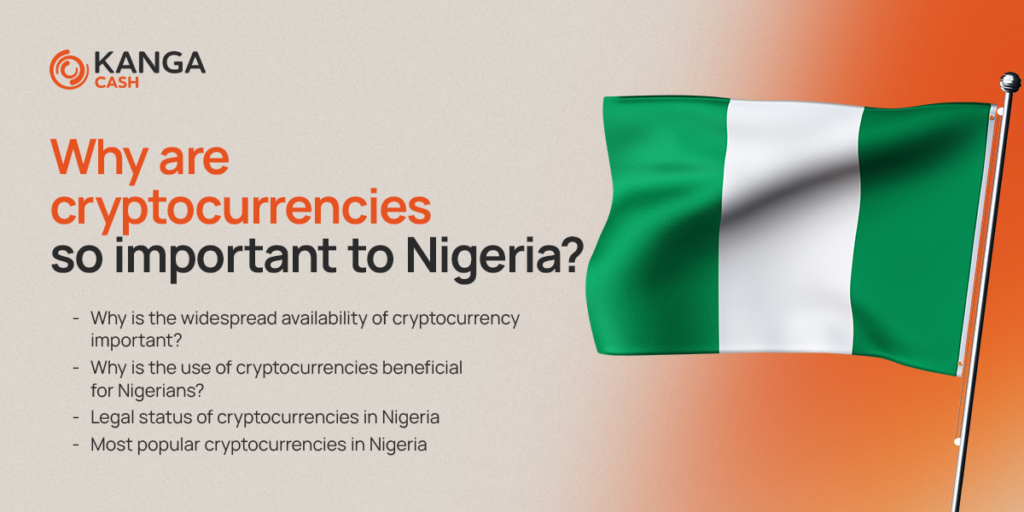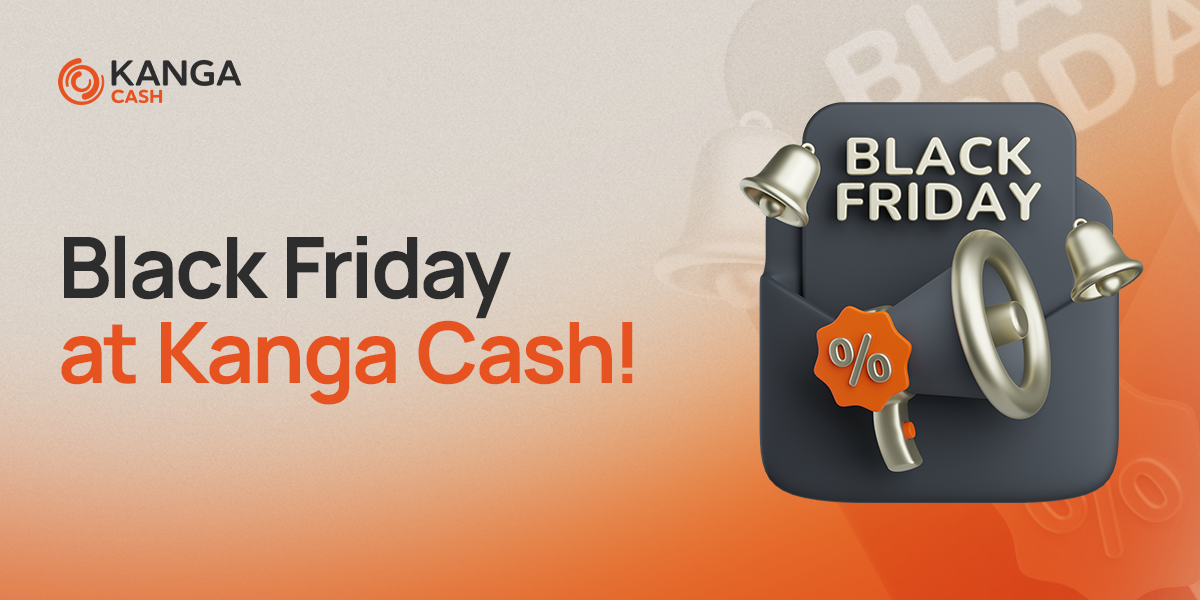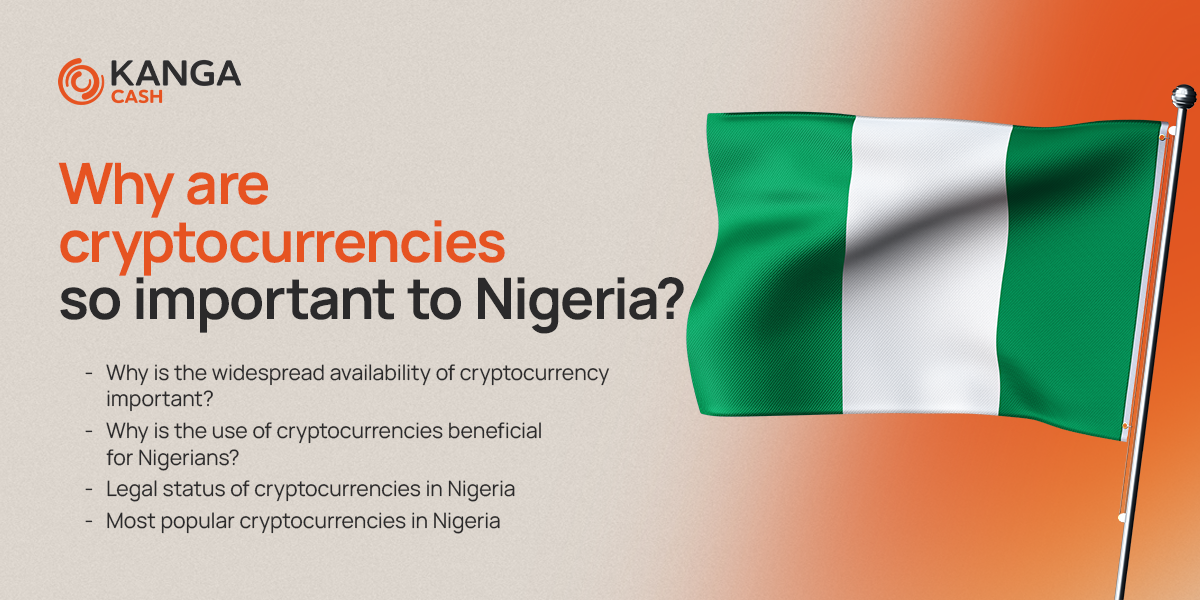Why are cryptocurrencies so important to Nigeria

More and more countries are adopting cryptocurrencies and blockchain technology, but not all of them do it to the same extent. Which country is currently considered the king of crypto? It turns out that Nigeria has the highest percentage of digital currency users in the world. Each year, they become more widely used and become more and more popular among Nigerians. This is due, among other things, to the decline in the value of the national currency, high inflation and limited access to traditional financial services.
It is worth noting that the approach to cryptocurrencies and blockchain technology may differ significantly from country to country. Some of them adopt a friendly approach and support the development of this sector, while others introduce very strict regulations or even bans. Details about Nigeria’s attitude towards cryptocurrencies can be found in this text!
Why is the widespread availability of cryptocurrency important?
Global availability is one of the key advantages of cryptocurrencies. Using them provides great freedom, independence and control over financial resources. However, the lack of geographical restrictions means that crypto users do not have to worry about national borders or the need to exchange currencies when making transactions.
Another issue is that many people around the world, especially in developing countries, do not have access to traditional banking services. Cryptocurrencies open the door to the global economy. All you need is access to the Internet, which is common, even in regions where traditional banks are not present. Additional cryptocurrencies can contribute to economic development in countries where traditional financial services are limited. They give people the opportunity to do business, invest and participate in international trade, which can benefit the economy.
Cryptocurrencies also allow you to avoid dependence on traditional financial institutions such as banks. Moreover, they facilitate international transactions by eliminating the need for currency conversion and lengthy money transfer processes through traditional banks. As you know, traditional methods of transferring money internationally, such as bank transfers or transfer services, often involve high fees. Cryptocurrencies offer potentially lower transaction costs and enable virtually instantaneous transfer of funds, regardless of the recipient’s location.
Why is the use of cryptocurrencies beneficial for Nigerians?
Nigerians constitute a significant group of cryptocurrency users on a global scale. Nigeria is often mentioned as one of the countries where cryptocurrencies are very popular and widely used. The reasons lie in the fact that the country is struggling with a weakening currency and rapidly rising inflation. A report published by New York-based blockchain research firm (Chainalysis) shows that cryptocurrency transaction volume in Nigeria increased by 9% year-on-year, reaching $56.7 billion between July 2022 and June 2023.
Moyo Sodipo, co-founder of Bush’s Nigerian cryptocurrency exchange, commented on the attitude of Nigerian residents to cryptocurrencies. According to him, Nigerians are constantly looking for opportunities to hedge against the depreciation of the naira and sustained economic decline since the COVID pandemic.
According to other reports, interest in cryptocurrencies among Nigerians increased significantly during the cryptocurrency market crash in April 2022. Analysis of Google Trends data conducted by CoinGecko indicated Nigeria as one of the countries most interested in cryptocurrencies. Search history across countries was analyzed and the results highlighted the popularity of cryptocurrencies in Nigeria even during a period of decline in the digital asset market.
Nigerians are turning to cryptocurrencies because they are struggling with the depreciation of the national currency, high costs of international transfers, as well as limited access to traditional financial services in some areas of the country. It is worth noting that the popularity of cryptocurrencies in Nigeria may also be related to their potential as a store of value and investment in the face of the depreciation of the national currency.
The official exchange rates for the Nigerian naira to foreign currencies are set by the Central Bank of Nigeria, which often devalues the naira compared to other currencies. This depreciation process reduces the value of the naira and prompts Nigerians to seek alternatives to preserve the value of their earnings. In 2020, the Central Bank of Nigeria reduced the value of the naira by 24%, which further encouraged people to become interested in cryptocurrencies as a store of value.
In Nigeria, traditional banking systems impose high fees for sending money in and out of the country. Cryptocurrencies are an economical alternative to international transactions. As you already know, one of their main advantages is that they often offer much lower costs of international transfers. Additionally, they are also characterized by the speed of transaction processing.
The freezing of bank accounts related to cryptocurrency activities has become one of the main factors that have prompted many Nigerians to continue using cryptocurrencies. Some have decided to move their activities to peer-to-peer (P2P) transactions to bypass traditional banks completely. Cryptocurrencies allow money to be transferred directly from person to person via decentralized wallets, reducing reliance on banking infrastructure. This is an example of how cryptocurrencies can give users greater control over their finances and enable them to bypass traditional financial institutions in response to changing regulatory conditions.
Legal status of cryptocurrencies in Nigeria
Naturally, the question arises, are cryptocurrencies legal in Nigeria? The legal status of cryptocurrencies is not entirely clear. They are not recognized by the Central Bank of Nigeria (CBN) as legal tender, but their use is not prohibited. The problem is that there are no regulations, laws or legal acts regulating cryptocurrencies in Nigeria. On the contrary, they became traded on cryptocurrency exchanges across the country. They are simply not part of the banking sector.
Back in 2017, the CBN banned banks from facilitating cryptocurrency transactions, but it is believed that this restriction was not fully respected at that time. According to reports from employees of the research department of the Central Bank of Nigeria, these warnings were intended to contribute to educating Nigerian citizens about cryptocurrencies. It was unclear whether they understood that cryptocurrencies were not guaranteed by the state, unlike the CBN-issued naira.
In February 2021, the CBN banned commercial banks in Nigeria from participating in any cryptocurrency-related transactions. In the same year, Nigerians had their bank accounts frozen due to their involvement in cryptocurrency activities. The CBN has clearly stated that Nigeria’s financial and banking system will not be involved in cryptocurrency trading, in order to protect citizens from criminal activities and possible black market fraud.
Despite the CBN ban, P2P trading has become popular in Nigeria, proving that Nigerians are still interested in using cryptocurrencies and are finding creative ways to get around regulatory hurdles. P2P activities allow people to trade cryptocurrencies without having to use traditional financial institutions or banks. In this trading model, a person who wants to buy cryptocurrencies can directly find someone who wants to sell them and exchange the funds. This helps avoid restrictions imposed by the CBN and other regulations on the use of cryptocurrencies in the traditional financial sector.
In 2022, Nigerian market regulators published a set of regulations regarding cryptocurrencies. Nigeria, like many other countries, is likely to seek to strike a balance between ensuring regulation and control of the digital asset market while encouraging the development of innovative blockchain and cryptocurrency technologies. Such regulations often include requirements for registering cryptocurrency businesses, identifying users, and monitoring and reporting transactions.
Most popular cryptocurrencies in Nigeria
It will certainly not surprise anyone that bitcoin is the most popular cryptocurrency in Nigeria and is the main means of payment in transactions. It is available on all exchange platforms in the country. Interestingly, at the beginning, bitcoin caused skepticism and was associated with pyramid schemes and fraud. Over time, these negative associations began to fade due to factors that promoted the use of bitcoin and cryptocurrencies.
However, apart from the well-known Bitcoin, other cryptocurrencies such as Dash and Ripple also enjoy considerable popularity. These cryptocurrencies have their own unique features and uses that attract investors.
Dash, for example, is a significantly faster transaction speed cryptocurrency than bitcoin, making it an attractive choice for people who value speed of payments. Ripple, on the other hand, focuses on facilitating international transfers and bank settlements, which may be attractive to companies and financial institutions in Nigeria that transact internationally. In conclusion, both Dash and Ripple have advantages that can attract different groups of users in Nigeria, depending on their needs and transaction goals.


